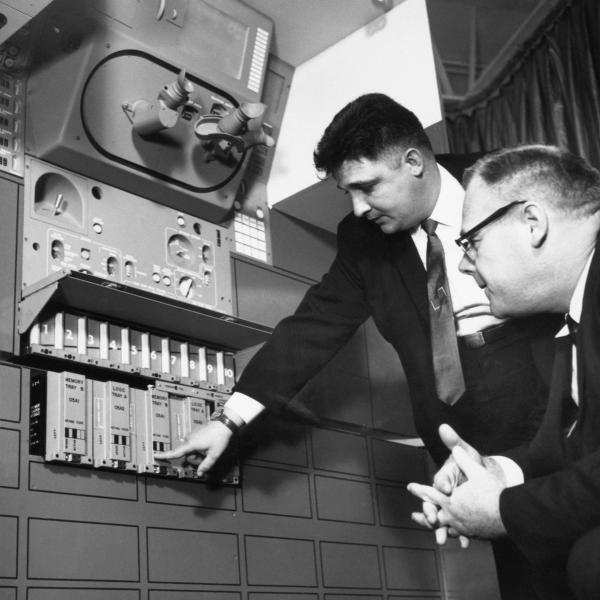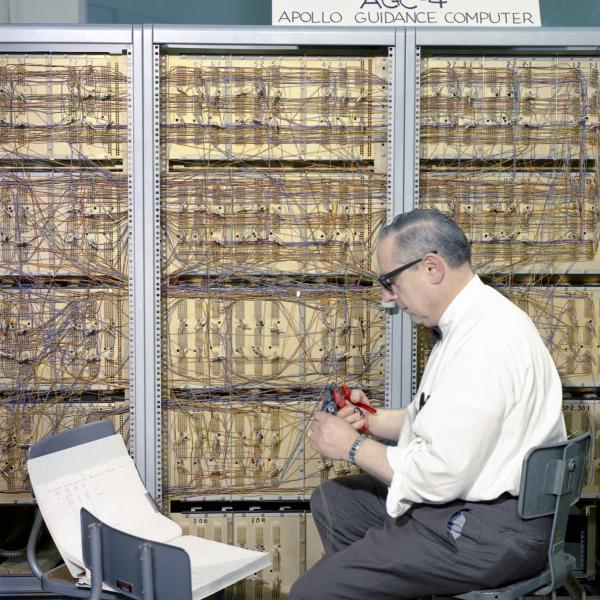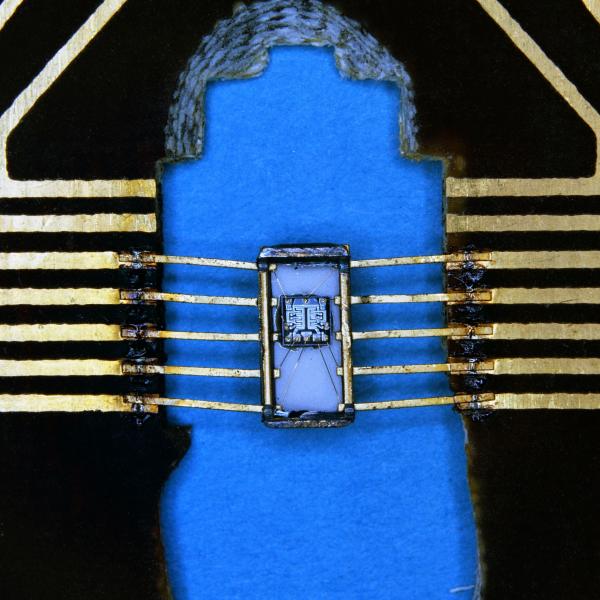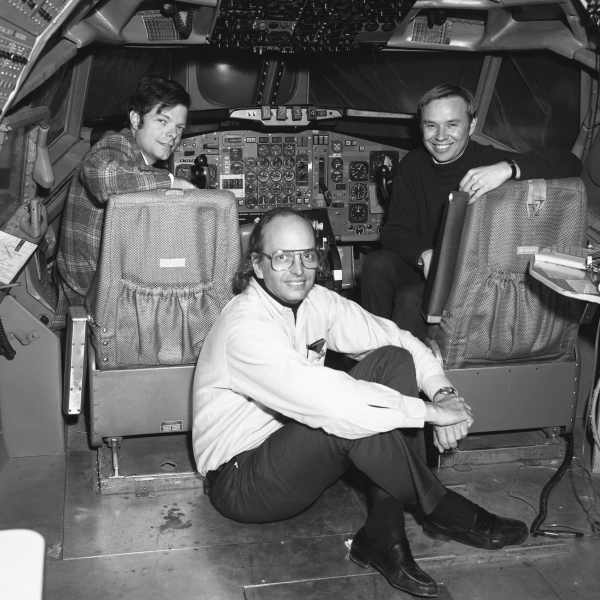
Eldon C. Hall
Eldon Hall worked in computer science and design while at MIT/Draper. He began working at the MIT Instrumentation Laboratory in 1952 after studying at Eastern Nazarene College, Boston University, and Harvard. He first worked with random processes in control systems and later his work with the mathematics group included analog-to-digital conversions for guidance systems.
Having come from a physics background, Hall had to learn digital computer engineering from scratch. He also worked on the Thor and Polaris missiles as the groundwork for the Apollo computer was laid down. It was here that Hall convinced the Navy to use digital guidance computers. It was with the Apollo computer that Hall combined everything he had learned in order to determine how to design a computer that would fit the small space available, both in terms of physical and operating systems. He led the hardware design, pushed for the use of integrated circuits in the design, and dealt with intense scrutiny from NASA’s safety team. There were several meetings to ensure the design and schedule of the computer.
As his career at the IL and Draper wound down, Hall continued working on studies for NASA’s space shuttle program. He retired from MIT and Draper in 1988 and published a book about the Apollo Guidance Computer called Journey to the Moon.



